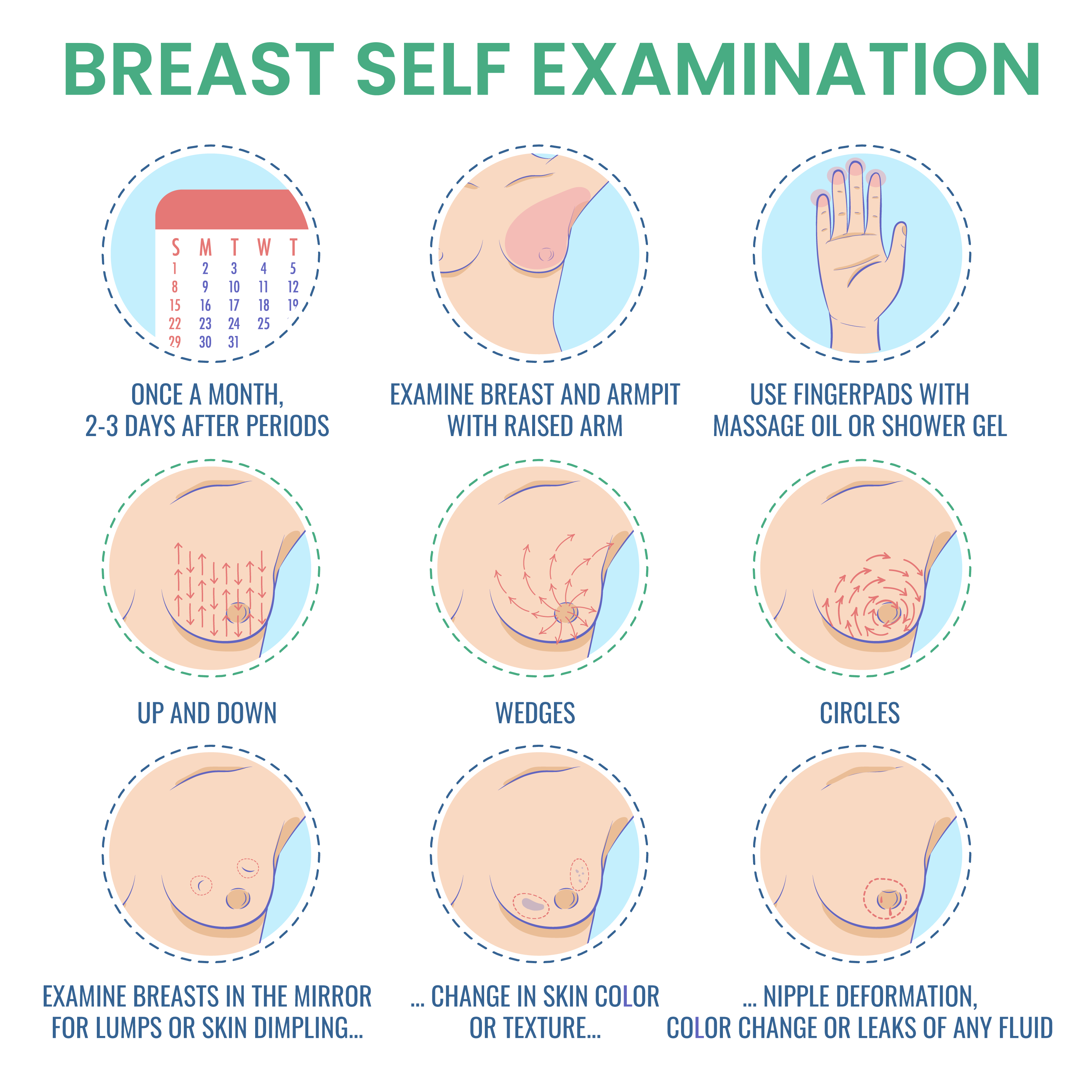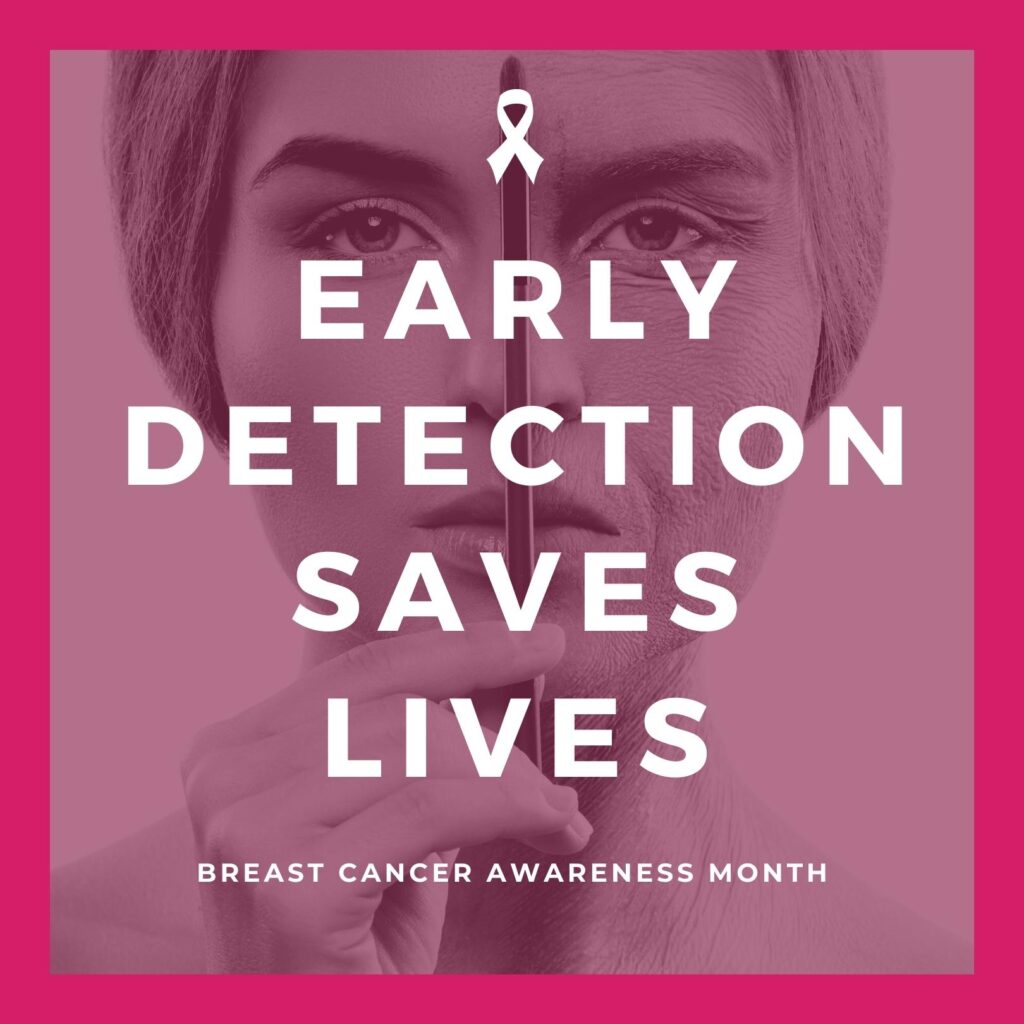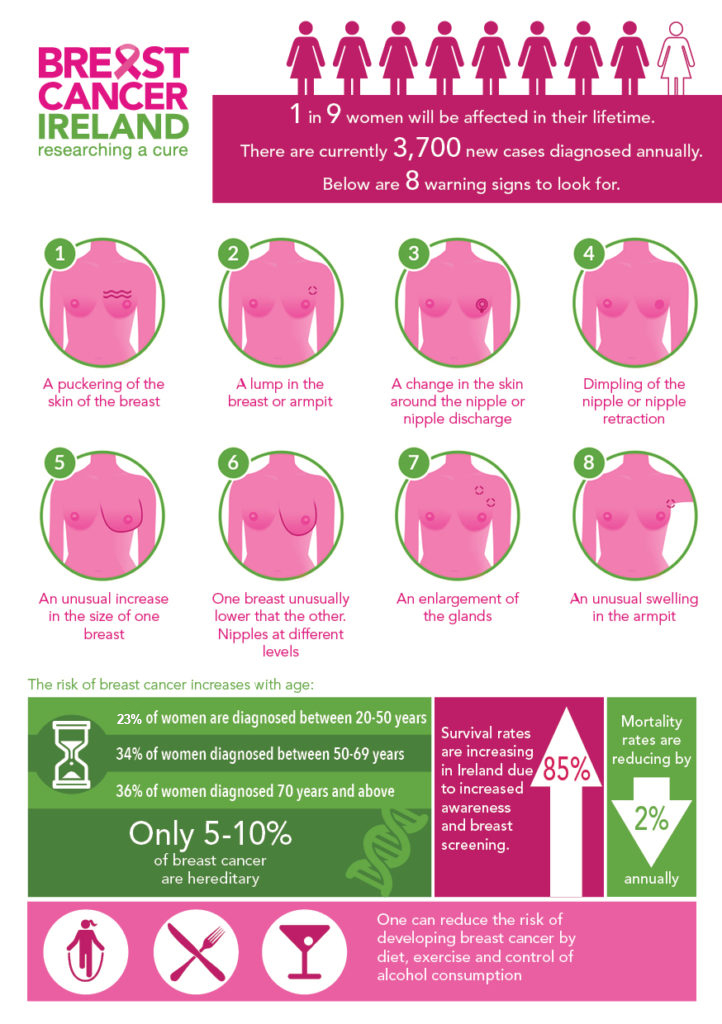October is Breast Cancer Awareness Month and this year’s theme is “Care for your Pair”. Because Breast Cancer is the second most common cancer diagnosis in Ireland, we are here to help you get Breast Aware and check for early signs of Breast Cancer.
One in nine women will receive a breast cancer diagnosis with 3,700 new cases being diagnosed each year. Unfortunately, there are over 690 deaths a year as a result of breast cancer, however while incident rates are rising, mortality rates have been declining by 2% annually.
While it is more common in women over the age of 70 (36%) and aged 50 to 69 (34%), 23% of all breast cancer diagnosis are in women between 20-50 years, according to Breast Cancer Ireland.
Breast Cancer does not just occur in women, with 37 men a year diagnosed, that’s 1 in 1000!
The Marie Keating Foundation’s Breast Cancer Awareness 5-point Code advises:
- Know what is Normal for you
- Know what changes to Look and Feel for
- Look and Feel for Changes
- Report Any Changes to your Doctor without Delay
- Attend Routine Breast Screenings if you are 50-64 years of age
Getting to know your breasts or becoming Breast Aware is the best thing you can to in helping to spot any early signs of Breast Cancer. No two breasts are the same and as women your breast can change at different times of the month due to hormones. Knowing what is normal for you is the first step in being breast aware.
Once you familiarise yourself with the signs and symptoms of Breast Cancer it is then time to familiarise yourself with your own breasts. In Ireland women over the age of 50 are offered free breast screening which involves a mammogram. These screenings continue every two years up until the age of 69. However there are current talks about decreasing the age for free breast screenings.
To check your eligibility or enquire about your free breast screening Freephone 1800 45 45 55 or check the register here.
Breast changes can occur during a woman’s menstrual cycle, while breastfeeding, or throughout menopause. That is why it is important to know your breasts, know what is normal for you, and to conduct regular self-checks.
Easy Breast Self-Check Steps:
– Using a mirror look and inspect your breasts. With arms by your side, then raise your arms to check for any changes or dimpling. Lean over to check for any changes in size, inflammation, or enlargement.
– Lying Down, use opposite hand to breast. Using three fingertips, the index finger, ring finger and middle finger, start from the centre of your breast and work yourself outward in small circular motions, applying pressure to check for any lumps or changes.
– Cover the entire area of the breast, from the collarbone to below the breast, the space in between your breasts and along the armpits.
– Repeat with your free arm bent behind your head.
– Repeat standing in the shower with soap making it easier to move and feel tissue or lumps.
– Compress/Squeeze nipples to check for any discharge (unless breastfeeding)

Note any changes and contact your GP with ANY concerns.
Breast Self-checks should be conducted monthly by anyone over the age of 20. The opportune time to conduct a breast self-check is 7-10 days after a menstrual period.
Survival rates in Breast Cancer in Ireland have increased to 85% due to increased awareness and breast screening. At present, there are over 2, 533 women in Ireland who have survived Breast Cancer.

Nine out of 10 breast changes are not an indication or result of cancer however it is always important to consult your GP if you notice any changes.
Contact Form
Contact Form
Previous Posts

Core Values Awareness Month at Servisource
Servisource Celebrate Core Values Awareness Month At Servisource, our core values are the foundation of everything we do. During Core Values Awareness Month, we took the time to reflect on what these values truly mean to us as individuals and as a team. From delivering world-class services to standing by our commitments with integrity, our…

World Mental Health Awareness Month 2025
World Mental Health Awareness Month 2025 World Mental Health Awareness Month 2025 is in May and its aim is to highlight the importance of mental wellbeing and educate the public while reducing stigma. Each year, individuals and organisations come together to raise awareness and advocate for better mental health care and resources. This year’s official…

Pass the RCSI Nursing Test with Servisource
At Servisource, we understand the importance of strong preparation when it comes to qualifying as a nurse in Ireland. That’s why we offer a focused and supportive training course to help overseas nurses successfully pass the RCSI Faculty of Nursing and Midwifery (FNM) Aptitude Test a key requirement for registration with the Nursing and Midwifery…

International Wheelchair Day
International Wheelchair Day International Wheelchair Day is held on the 1st of March and it is an annual day of events and activities around the world where wheelchair users celebrate the positive impact a wheelchair has on their lives. Wheelchairs are one of the most commonly used assistive devices for enhancing personal mobility, which is…

Sustainability and Ethical Recruitment Practices
Sustainability and Ethical Recruitment Practices In today’s fast paced job market, sustainability and ethical recruitment practices are more important than ever. When organisations balance efficiency with fairness, it ensures candidates are treated with dignity and respect throughout the hiring process. Ethical recruitment practices are not just a compliance requirement, it also fosters a positive employer…

What Does Servisource Do?
What Does Servisource Do? For healthcare candidates and clients, it is beneficial to understand the advantages of healthcare recruiters and Servisource have created this guide to help both clients and candidates understand exactly what does Servisource do? Servisource is an Irish-owned international recruitment and care services provider with over 20 years’ experience. Servisource as an overall…
